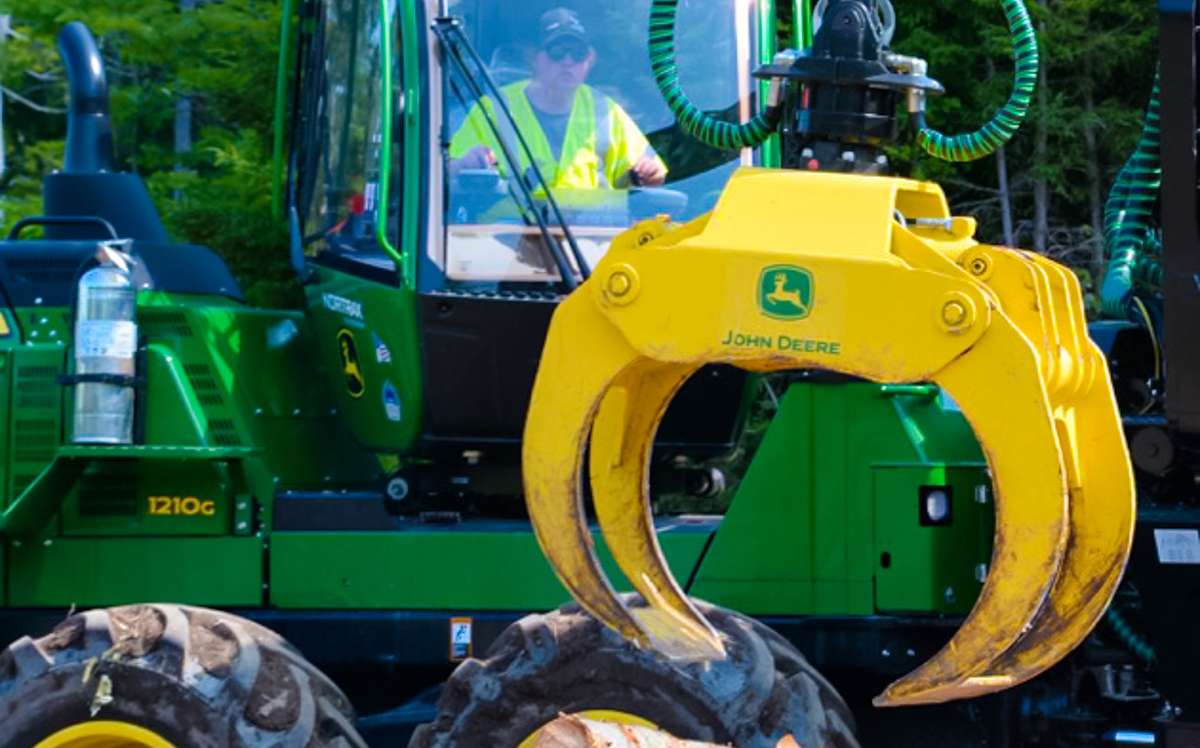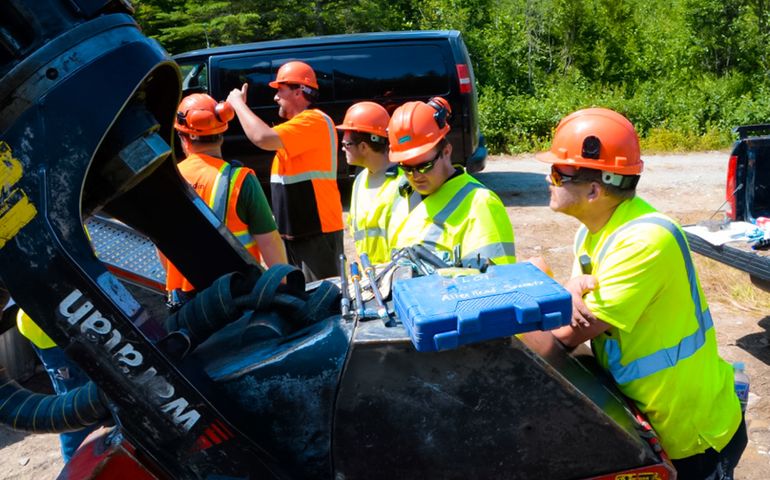
Hands-on program helps fill workforce pipeline in Maine's $600M logging industry
 Photo / Courtesy of Professional Logging Contractors of Maine
Including this year’s group, 60 students have gone through the training program.
Photo / Courtesy of Professional Logging Contractors of Maine
Including this year’s group, 60 students have gone through the training program.
Logging industry veteran Mike Nadeau employs a little more than 20 people at White Oak Inc., a logging and trucking company he co-owns in the Aroostook County town of St. Francis.
Last year when Nadeau needed another skidder operator to remove cut trees from wooded areas, he hired a graduate of a 12-week certificate program who hit the ground running from Day One — saving his firm around $50,000 in training costs.
The new employee “was further along than the guy driving the skidder for two years because he learned it the right way,” says Nadeau, who looks back on 40 years in the industry. “It’s a very good program that’s bringing young people back into this industry, which we need.”
He knows that need firsthand, from running a firm that once employed more than 40 people, and describes the past year as a “nightmare” with demand for hardwood pulp way down because people are using less paper.
White Oak nevertheless remains busy, and Nadeau hopes the certificate program gets funding to expand.
The hands-on program, launched in 2017, was developed jointly by the Professional Logging Contractors of Maine and Northern Maine, Eastern Maine and Washington County community colleges, with support from industry partners. Including this summer’s group, 60 students have gone through the program.
Besides learning about timber growth, tree species and markets, students are taught how to safely operate equipment so that they are career-ready upon graduation.
The program, taking place this year in the woods northeast of Old Town, aims to train a new generation of younger loggers ready to enter the industry as older workers reach retirement age. Another goal is to attract more women, although there are none in the current group, according to Dana Doran, PLC’s executive director.
“Though it’s a traditionally male-dominated workforce, a lot of women who really manage the business along with their husbands don’t get the credit they deserve or recognition,” he says. “We’d like to see more female equipment operators.” He also says that women tend to pay greater attention to detail.
Maine’s loggers contribute significantly to the state’s forest products sector, which is worth an estimated $7.7 billion annually.
The logging industry alone contributed an estimated $619 million to the Maine economy in 2017, supported more than 9,000 jobs directly or indirectly and generated $342 million in labor income, according to the PLC.
The trade group also estimates that the industry paid an estimated $25 million in state and local taxes in 2017.

Among graduates of the 12-week certificate program, William Mazariego is a 22-year-old skidder operator on track to make $60,000 this year working for a company based in Fryeburg, he says.
He enrolled in the program after hearing about it while enrolled in a vocational program at Oxford Hills Comprehensive High School, and had job offers from all over the state by the time he finished.
“The program really gives you a leg up getting into the industry,” he says. “There’s a lot to learn in a short time to learn it.”
Mazariego also notes that while getting professional certification is not a requirement to getting a job, it makes a job candidate look better to a potential employer, and helps the employer determine compensation.
Pittston resident Ben Shaw is another alumnus of the program, which he enrolled in after graduating from high school in 2018.
Despite no prior logging experience except for using a chainsaw, Shaw enjoyed the program and took a job soon after finishing. He doesn’t think that would have happened without the training course, since logging jobs usually come by word of mouth, he says,
Already in his second job, now with West Gardiner-based McGee Construction Co., Shaw says he’d recommend the training program for others interested in what he regards as a hard but rewarding profession.
“Mentally it’s exhausting,” he says, “but I love it. I wouldn’t want to do anything else.”











0 Comments